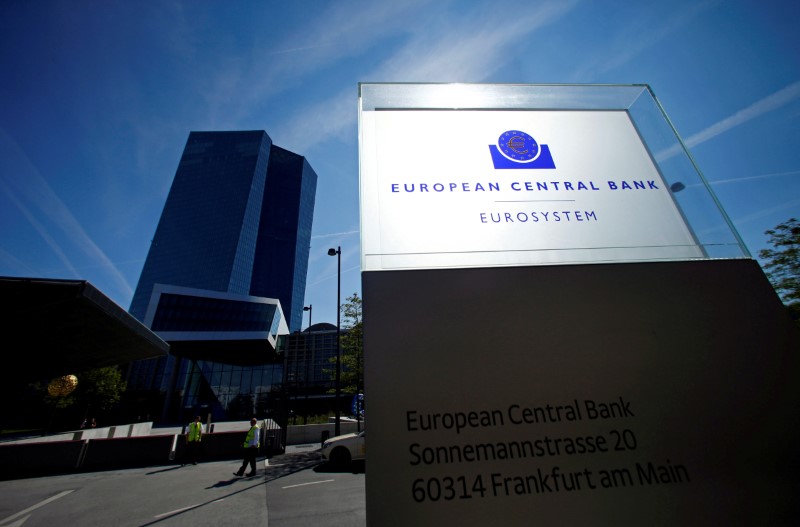FRANKFURT (Reuters) - European Central Bank rate setters meeting last month agreed on the need to maintain unprecedented monetary stimulus and to decide in December whether to extend the ECB's 1.74 trillion euro asset buys, minutes of the meeting showed on Thursday.
Core inflation still lacks a convincing upward trend and wage growth has been unexpectedly subdued, but the euro zone economy is developing along the path seen earlier so it was premature to make a call either way, minutes of the Oct 20 meeting showed, repeating policymakers widely discussed view.
"It was imperative to remain fully committed to preserving the very substantial degree of monetary accommodation that was necessary to secure a sustained convergence of inflation towards levels below but close to 2 percent," the ECB said in the accounts.
Although the ECB is still expected to extend its 80 billion euro (68.85 billion pounds) per month asset buys beyond its scheduled end next March, the sharp rise in yields and dollar's firming since the U.S. presidential election this month may complicate the debate.
The ECB is likely to be concerned by higher yields, particularly on the bloc's periphery, but the weaker euro helps inflation and rising stock prices also suggest investors are betting on stronger growth.
"Members widely agreed that in December the Governing Council would be in a better position to form a firmer view on the inflation outlook and the progress being made in achieving a sustained adjustment in the path of inflation, with a view to considering the appropriate implication for the monetary policy stance."
Although headline inflation is expected to rise, policymakers noted that wage growth has been slower than expected and some expressed concern that employment growth may slow.
Still, they also said that the risk of low energy prices becoming embedded in prices had diminished.
Policymakers added that any technical change to its assets buys should be made taking into account the inflation outlook and how that would influence policy.
"Changes to the technical parameters of the APP should not be separate from an assessment of the medium term inflation outlook and the implication this might have for the appropriate monetary policy stance."

($1 = 0.9313 euros)